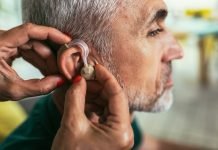
A large-scale study led by the University of Helsinki involving over 600,000 participants has found that insomnia can increase the risk of respiratory infections, including influenza and severe COVID-19.
The study utilized data from over 600,000 individuals from Finland (the FinnGen study) and the United Kingdom (the UK Biobank).
The risk of developing an unspecified respiratory infection was almost six times higher among Finnish individuals diagnosed with insomnia, and the risk of influenza was more than four times higher compared to other participants.
The UK biobank data supported these findings.
Genetic Analysis and Causal Relationship
Previous research has suggested a link between short-term insomnia or sleep deprivation and immune system response.
Chronic insomnia’s correlation with susceptibility to infection has also been explored, but large-scale population studies have rarely been conducted, and the tools for testing causality through genetic instruments have only recently become available.
The study used genetic epidemiology methods to investigate a potential causal link between insomnia and infections.
The study’s findings suggest that insomnia increases the risk of respiratory infections and can also be associated with the severity of COVID-19 symptoms and instances of COVID-19 infection requiring hospitalization.
Dr. Hanna Ollila from the Institute for Molecular Medicine Finland (FIMM) at the University of Helsinki, who led the study, says that “the advantage of this kind of study design is that it makes use of longitudinal data.
The genetic analysis allows for the identification of causal relationships between two traits.”
The researchers demonstrated that the results are not influenced by factors such as obesity or smoking, which are known to predispose individuals to both insomnia and respiratory infections.
Public Health Implications
Given that approximately 30% of adults suffer from insomnia according to the American Academy of Sleep Medicine, these findings carry significant public health implications.
“Our results are in line with earlier literature and show that getting enough sleep is important for maintaining an effective immune defense,” concludes Hanna Ollila.
The study was a collaboration between the University of Helsinki, Harvard Medical School, and Yale and Stanford Universities, and its results have been published in the open-access journal, eBioMedicine.
If you care about sleep, please read studies about drug that can treat sleep loss and insomnia, and Mediterranean diets could help people recover after COVID infection.
For more information about health, please see recent studies about how sleep may help you process emotions and reduce PTSD, and results showing Vitamin D deficiency may increase death risk.
The study was published in eBioMedicine.
Copyright © 2023 Knowridge Science Report. All rights reserved.




